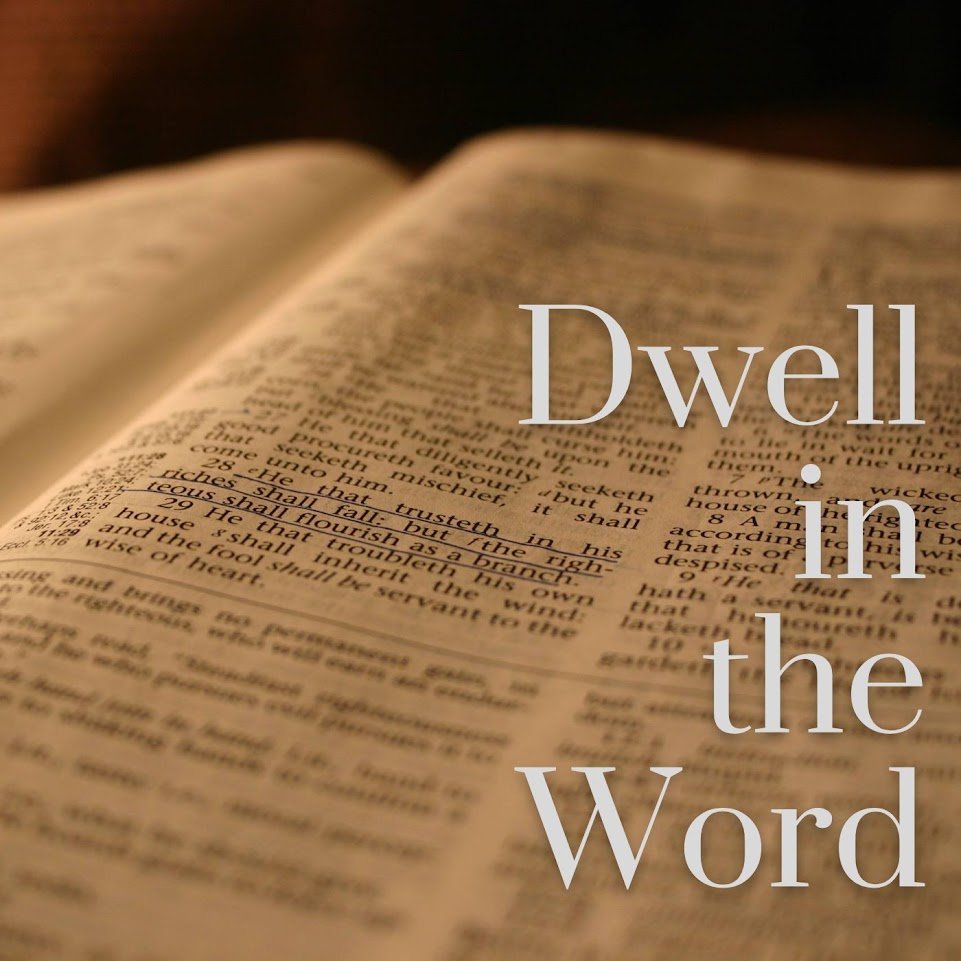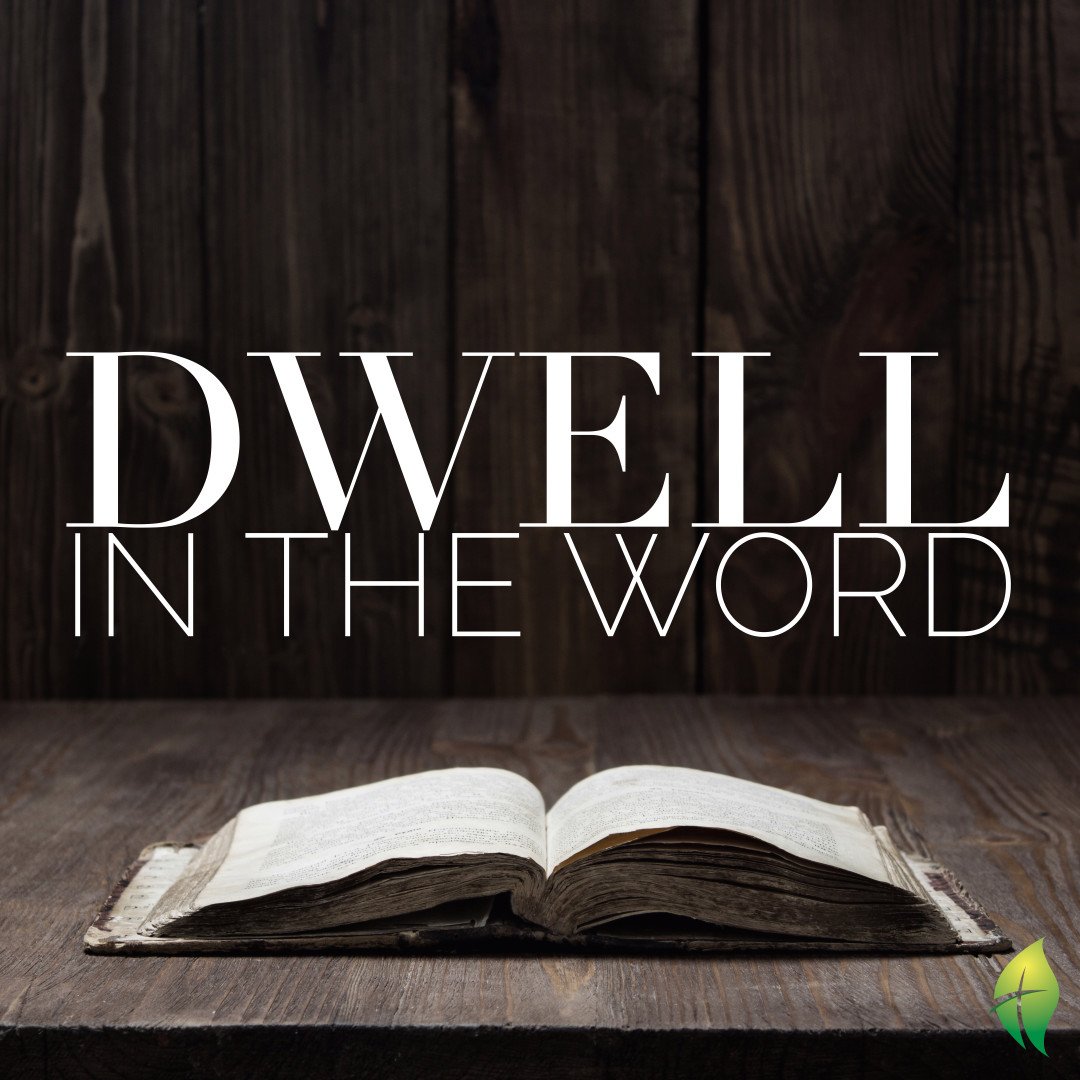
Dwell in the Word: Psalm 22
Dive into Psalm 22 as we explore the powerful words of lament that Jesus spoke from the cross. Discover the depth of David's anguish and the unwavering faith that shines through his words. Let's reflect on how we can find comfort and hope in God's promises, even in our darkest moments.

Dwell in the Word: Psalm 21
We land in Psalm 21 today and we see an opening statement of praise. And it's important that we stop for a moment and we remember back to Psalm 20. That Psalm was a call for salvation. It started with, may the Lord answer you in the day of trouble and then ends with the prayer for Yahweh to save the King. And the final words are, may he answer us when we call. Psalm 21 then is a companion to that previous chapter of the Psalter. And the idea is that this is a song of praise in Thanksgiving that God has provided victory for the King.

Trusting God Over Chariots and Horses | Psalm 20 Devotional | Dwell in the Word
In this Dwell in the Word devotional, Pastor Mark reflects on Psalm 20 and its timeless message of trust. While the world may rely on earthly strength—chariots, horses, power structures—the people of God are called to trust in something far greater: the name of the Lord. David's words point us to an unshakeable hope, fulfilled ultimately in Christ, who triumphed over sin and death. Watch, reflect, and be reminded where your true confidence lies.

Dwell in the Word: Psalm 19
Here in Psalm 19 we see a few different phrases that you probably find to be familiar. And you know the kind of statements in the Psalms that I'm talking about here. You are reading through a passage and you come across some verses, and the words are something that is used often, say, in prayers or in worship, and your brain says to you, oh, that's where this phrase is found in the Psalms. In fact, when we got to the end of Psalm 19, you might have thought, hey, that's what Mark says at the end of the prayer for illumination each week. Well, several phrases here are memorable to us because they are powerful and they use language that really draws us in. This Psalm of David is filled with praise and prayer, and he starts out by speaking about the handiwork of God.

Trusting God’s Strength | Psalm 18:33-50 Devotional | Dwell in the Word
As we have worked our way through Psalm 18, we've seen David speak of how God is his rock and his fortress and how God has rescued David even though he was in significant peril. The conflict that had such a deep impact on the life of David was King Saul pursuing him in jealousy. As we saw when we started this psalm, it's a psalm of praise to God for the deliverance that God gave him from this terrible situation. And as we close up this Psalm with verses 33 through 50, we're going to see a repetition of these ideas and we're going to see continued praise to God for the deliverance that he provides. When we wrapped up last time, David was making a statement by asking a question, Who is God but Yahweh and who is a rock except our God? The psalmist was making it very clear that God is in control and that God is faithful to keep the promises that he makes to his people.

Dwell in the Word: Psalm 18:20-32
As I said, this is our third episode in Psalm 18. First, we took a look at David praising God for his rescue with the first 3 verses of the psalm. And then we dug into verses 4 to 19, and we saw a vivid description of the peril that David was in, and we saw that only God could rescue David from this.
As we move on down to verse 20 now, the psalm transitions to contrasting the faithful 1 versus those who are not faithful.

Dwell in the Word: Psalm 18:4-19
We continue through Psalm 18 and what we read from verses 4 through 19 and what we see emphasized to us and what we read is the way in which David describes the desperate state of affairs that he's in. This is strong language that we see here. The opening of Psalm 18 used great imagery of fortresses and strongholds, and David told us that he was saved from his enemies, but as we continue, he paints a picture of how desperate that situation was.

Finding Unshakeable Strength in Dangerous Times | Psalm 18:1-3 Devotional | Dwell in the Word
Welcome to Dwell in the Word devotionals. Pastor Mark reflects on Psalm 18:1-3, reminding us how David trusted in God's strength as his refuge and fortress. Though David faced relentless pursuit and danger, his confidence was never in himself—it was firmly placed in the Lord. This passage invites us to find that same unshakeable security in God, who delivers His people and points us to salvation in Christ. Watch, reflect, and be encouraged by God's steadfast protection.

Dwell in the Word: Psalm 14
All right, as I mentioned, we are reading Psalm 14 today. It's a very familiar Psalm. Hear the word of the Lord. The fool says in his heart, there is no God. They are corrupt. They do abominable deeds. There is none who does good. The Lord looks down from heaven on the children of man to see if there are any who understand who seek after God. They have all turned aside together they have become corrupt. There is none who does good, not even one. Have they no knowledge.

Dwell in the Word: Isaiah 46:1-13
Honestly, passages like this are some of my absolute favorite in all of scripture. I love it when God skewers idolatry. There's always a lot of fun language, isn't there? This imagery that here, your gods, the things that you are worshiping are traveling on beasts of burden. They are being carried. They're not sustaining anything. They haven't created anything. You created them. They can't even save the beasts of burden or the burden. In fact, if you were to go into captivity, if you were captured, they would go with you. And so what does God say? We see this here, as I've highlighted in verses three and four. Listen to me, O House of Jacob and all the remnants of the House of Israel who have been born by me from before your birth, carried from the womb. Even to your old age, I am he. And to gray hairs, I will carry you. I have made and I will bear. I will carry and I will save. Notice the difference here. The Gods are being carried by these beasts, by these beasts of burden, but instead God is carrying His people. And He goes all the way to the beginning.

Dwell in the Word: Isaiah 45:1-13
So we see a clear, prophetic word here in the Book of Isaiah as we come to Chapter 45. Cyrus hasn't even come to power. He hasn't even been born yet, yet Isaiah is speaking this word about this one, Cyrus, who is going to do a great work. Now, this is strange because Cyrus is not a Hebrew. He is not from the nation of Judah. He is not from the nation of Israel. He is a Gentile. And yet God is ordaining that this one is going to be the one who will bring the people back, that he will free the people from where they have been exiled to, that they will come back to the land. And again, he is a Gentile. This is off. But why is God doing this? Well, we know the answer, as reformed folk, we know the basic concept behind the glory of God. Westminster Short of Catechism, question and answer one, what is the chief end of man? To glorify God and to enjoy Him forever. This is going to bring glory to God. This is why this is being done. We see here specifically, it's being done for the people of Israel, for God's servant, Jacob.

Dwell in the Word: Isaiah 44:21-28
This is a really cool passage to take a look at. We've seen all this language of exile and of judgment. Here we have a good reminder of what God is doing. What is amazing is we get to the end and God is doing an interesting thing, and we'll see what that is. But first, we need to remember this story that is told throughout scripture, this idea of God redeeming a people for himself, of him making a people for himself. It's all connected to his saving grace, to his redeeming power. We see here that Israel needs to remember and Jacob needs to remember. In other words, this all-encompassing, Hey, all the people who are my people, you need to remember something very important. I formed you. You're my servant. Hey, you're mine. I have made you my servant. I have bought you. And that's why this redemption language is so important here. This idea that they've been redeemed, that they've been bought. God has taken possession of them. He for lack of a better term, owns them because he has bought them. And so what was done to buy them? He's blotted out their transgressions like a cloud and their sins like a mist.
